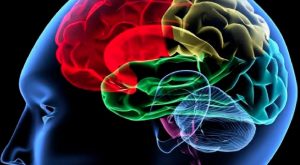
Supporting the brain injury patient through the expected phases of recovery requires a comprehensive, multidisciplinary team.
By Lane Brown, PhD, Program Director, Brain Injury and Stroke Programs; Director, Clinical Liaison Services, Magee Rehabilitation Hospital
Traumatic brain injury affects the injured worker and the family/support system of that worker. Brain Injury rehabilitation programs that address recovery with that understanding are best able to return the patient to the highest possible level of independence.
While a period of agitation (sometimes described as the “Rancho IV” level) is a typical phase in the process of brain injury recovery, the defining features of behavioral arousal and dyscontrol are alarming for support system members to witness. Education and intensive reassurance for the family of the injured worker are essential for maintaining trust and hope during this phase. Continued involvement and participation of the natural support system are key for return of the individual to his or her pre-injury environment.
Physiatrists with brain injury specialization are trained to utilize pharmacologic interventions sparingly and in well-planned trials, whether addressing agitation or non-responsiveness. This conservative approach supports neurochemical renormalization as the brain heals, and allows the physician and team to accurately gauge the effects of any medication that is trialed.
Supporting the patient through the expected phases of recovery requires a comprehensive team whose members are educated in those phases, and in the interventions most effective as the individual passes through them. All systems of the body are affected by brain injury. Cognition, as well as physical skills, must be addressed by the brain injury treatment team. A coordinated team approach allows reinforcement of effective interventions across disciplines, and provides reassuring consistency in education for the members of the support system.
Magee recently served an injured worker who experienced high levels of anxiety and motor agitation as a result of his brain injury. Each team member of his treatment team utilized scripted, quieting words with him, once he was able to attend to external input. His family member also learned and utilized that script. With consistency and repetition, the scripted intervention was successful in quieting the anxiety and facilitating his participation in his structured therapy sessions. His family noted a sense of satisfaction and comfort in their ability to help their loved one with these distressing symptoms.
The hallmarks of strong brain injury rehabilitation programs include the knowledge and coordination mentioned above, ongoing opportunity for education and reassurance for the support system, a central coordinator for the individual’s program of care, and a system of long term follow up to facilitate ongoing improvement and to prevent or address known potential complications after TBI. The Magee System of Care for Brain Injury is proud to provide those advantages to the individuals served at Magee Rehabilitation Hospital.




